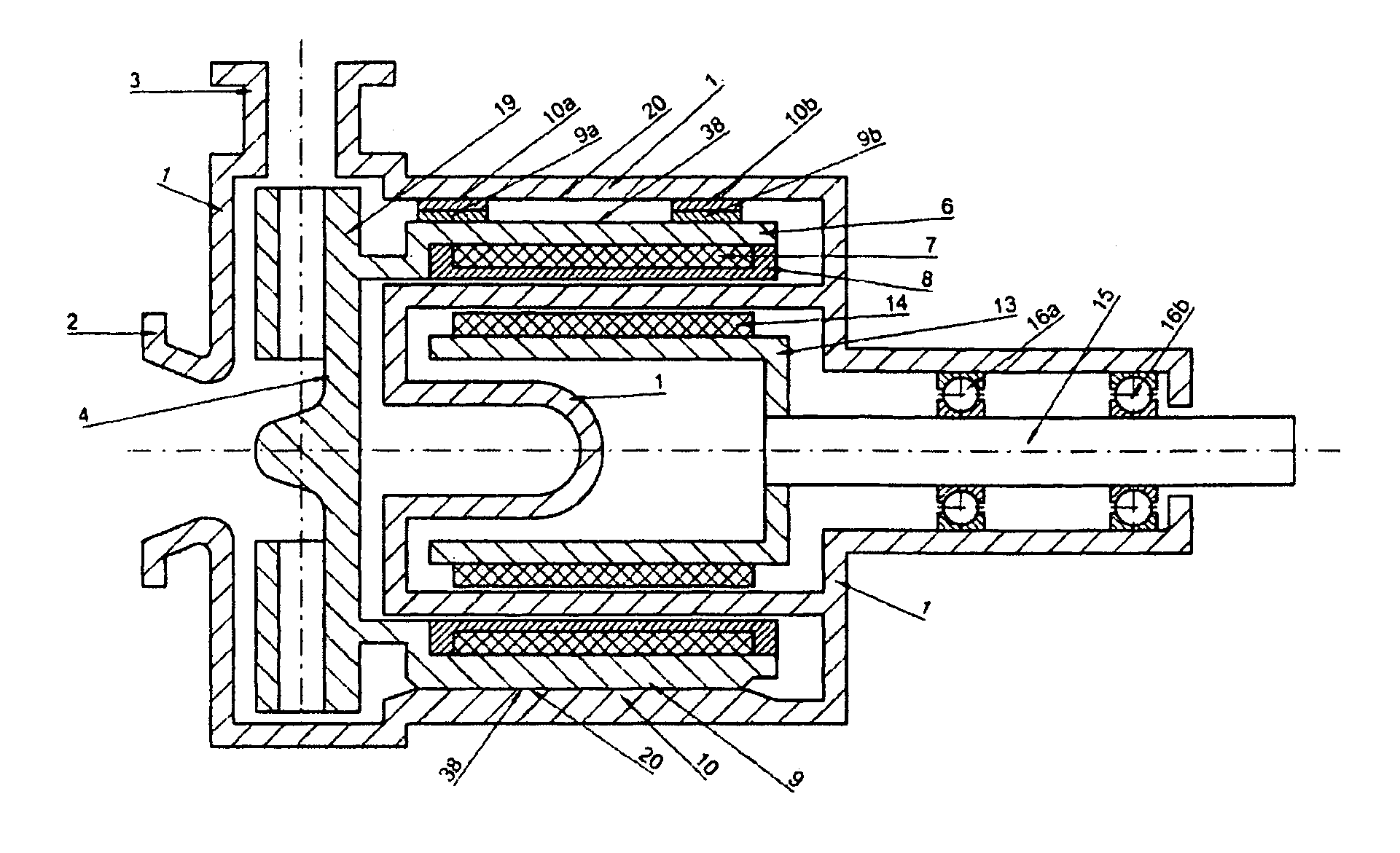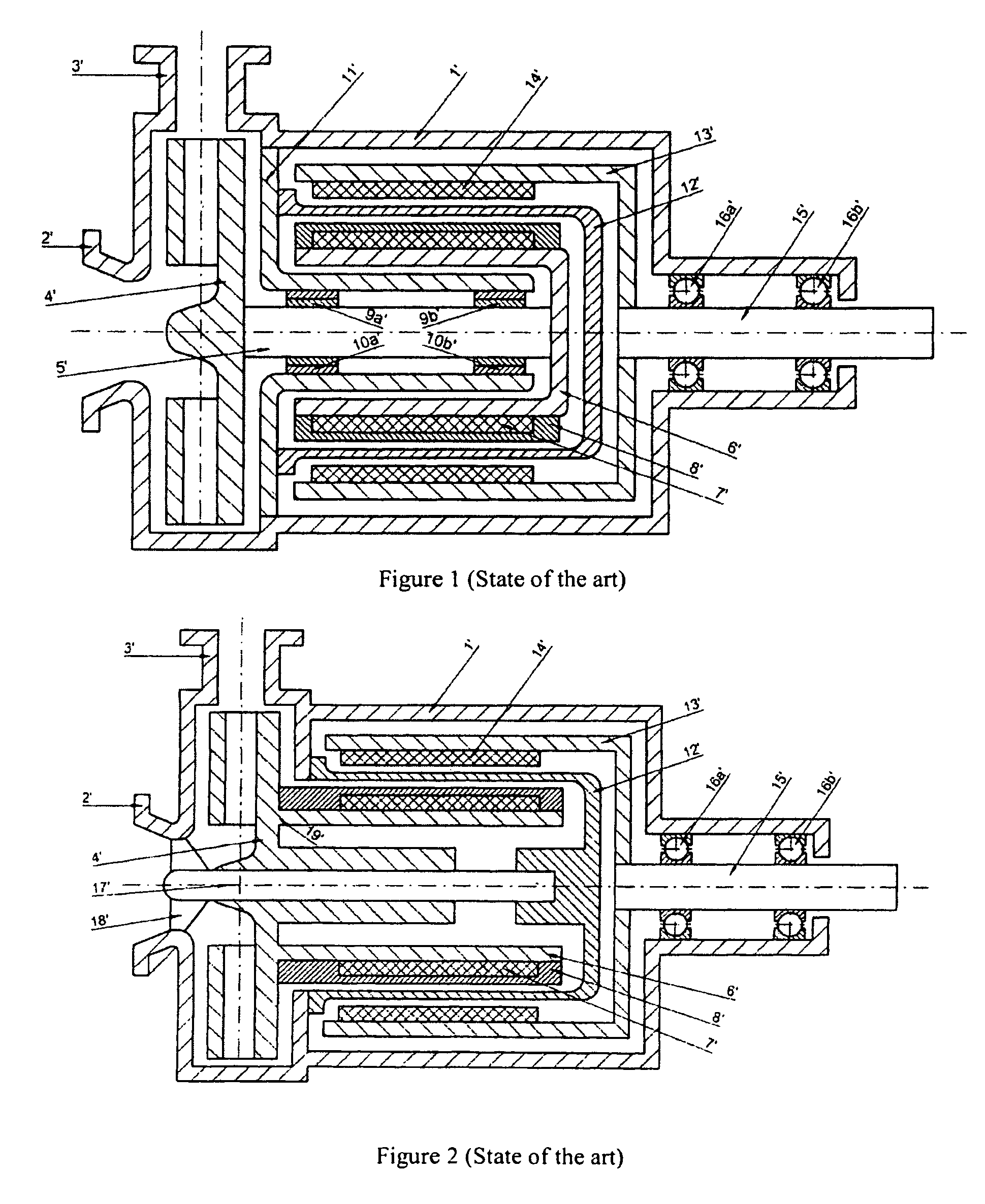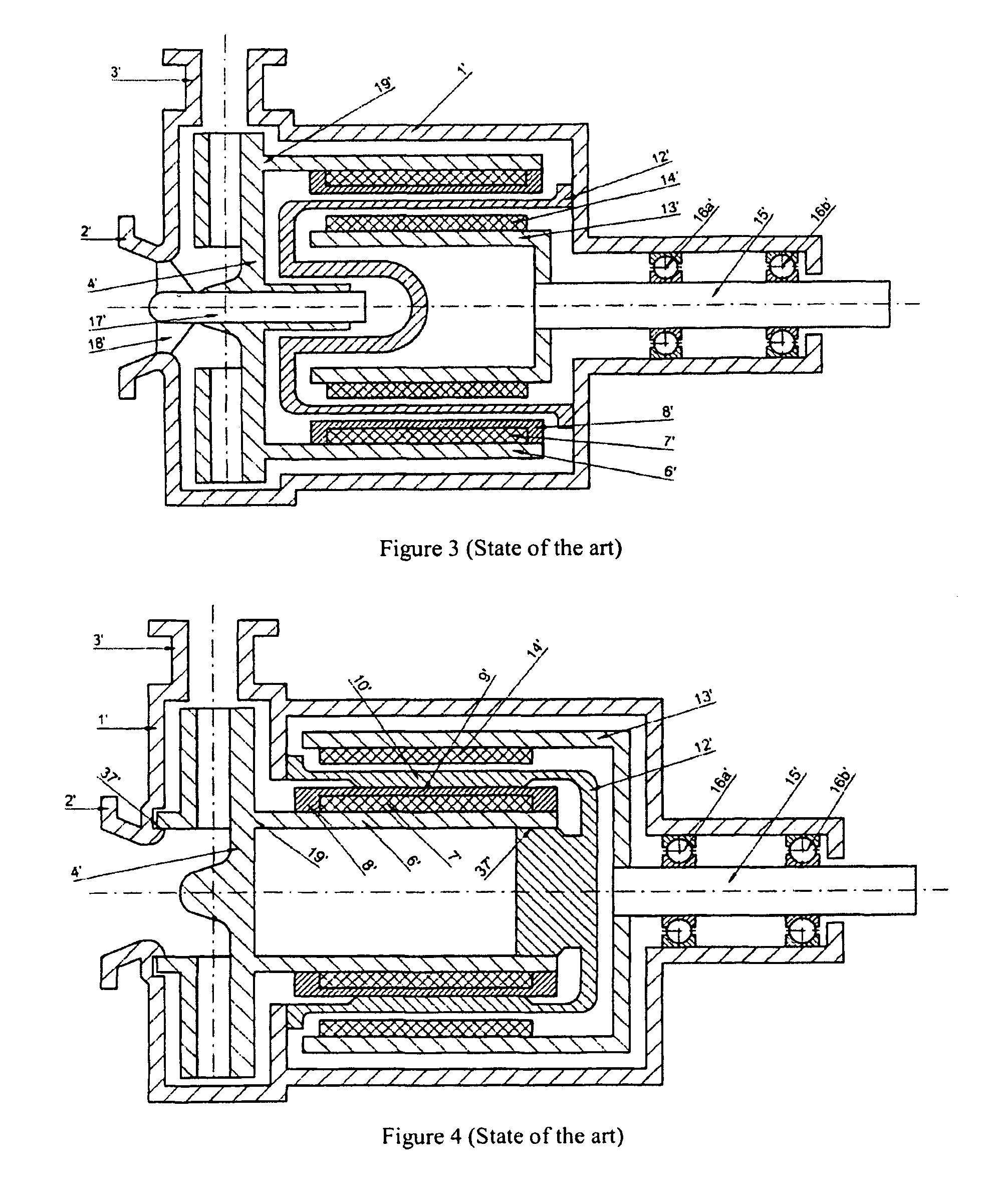Rotary pump with coaxial magnetic coupling
a magnetic coupling and rotary pump technology, applied in the direction of wind motor control, liquid fuel engine, motor, etc., can solve the problems of lack of lubrication, lack of even this liquid, and lack of lubrication, so as to avoid the mixed friction region of conventional floating bearings in magnetic coupling pumps, avoid overloading or deformation, and high floating speed
- Summary
- Abstract
- Description
- Claims
- Application Information
AI Technical Summary
Benefits of technology
Problems solved by technology
Method used
Image
Examples
Embodiment Construction
[0049]All embodiments have a pump housing 1 with a suction port 2 and a pressure port 3, wherein a pump blade wheel 4 is mounted coaxial to the suction port and is fluidically connected to the pressure port 3 in the radial direction. The pump blade wheel 4 has, on the drive side, a magnetic rotor 6, with which it forms a blade wheel-magnetic rotor unit that is open toward the drive side. On its outer periphery, this unit has the rotating part 9 of a floating bearing, while the stationary part 10 of this floating bearing is arranged on the inner wall 20 of the pump housing 1. On the radial inside, the magnetic rotor 6 carries permanent magnets 7. These stand opposite permanent magnets 14 with a radial distance and these magnets are arranged on the outer surface of an approximately pot-shaped magnetic driver 13. Between the magnetic rotor and the magnetic driver there is a separating wall in all embodiments, optionally in the shape of a so-called slotted pot 12, with this wall keeping...
PUM
 Login to View More
Login to View More Abstract
Description
Claims
Application Information
 Login to View More
Login to View More - R&D
- Intellectual Property
- Life Sciences
- Materials
- Tech Scout
- Unparalleled Data Quality
- Higher Quality Content
- 60% Fewer Hallucinations
Browse by: Latest US Patents, China's latest patents, Technical Efficacy Thesaurus, Application Domain, Technology Topic, Popular Technical Reports.
© 2025 PatSnap. All rights reserved.Legal|Privacy policy|Modern Slavery Act Transparency Statement|Sitemap|About US| Contact US: help@patsnap.com



